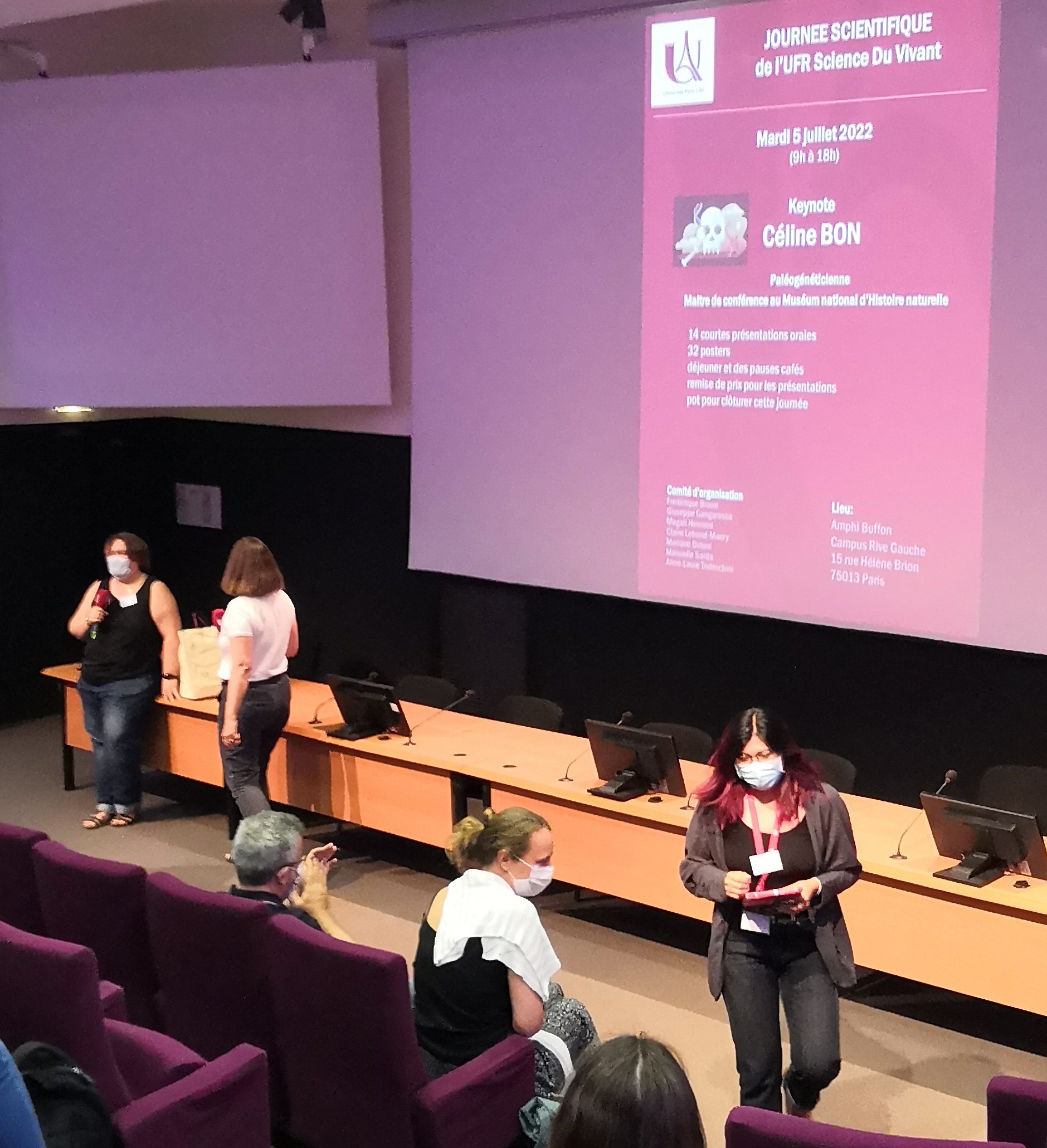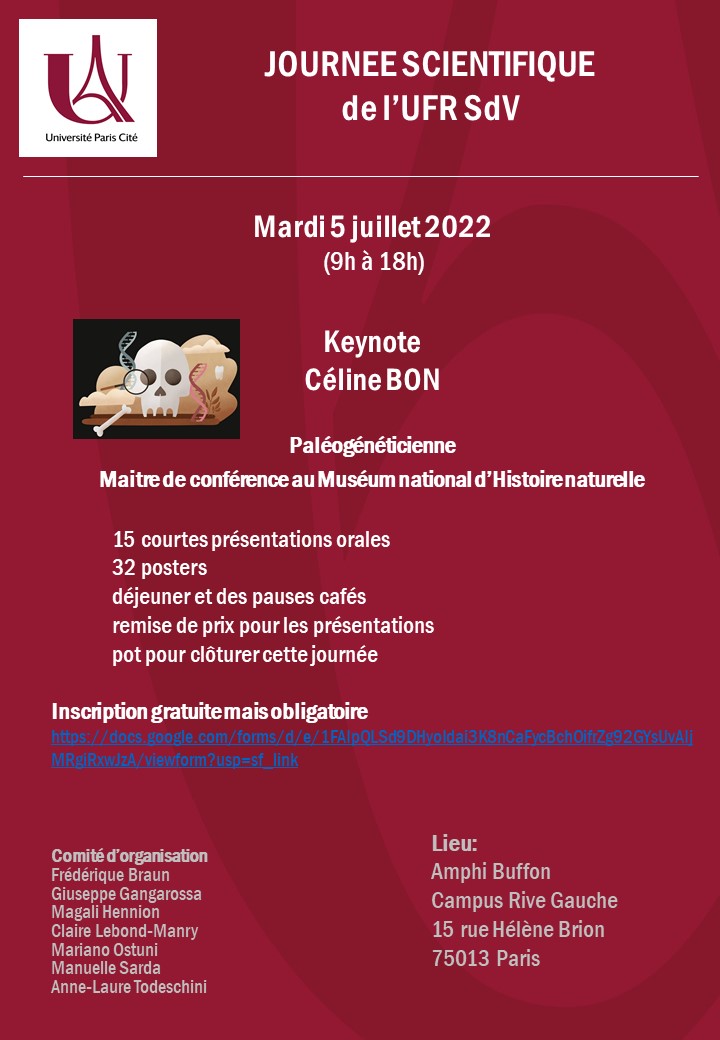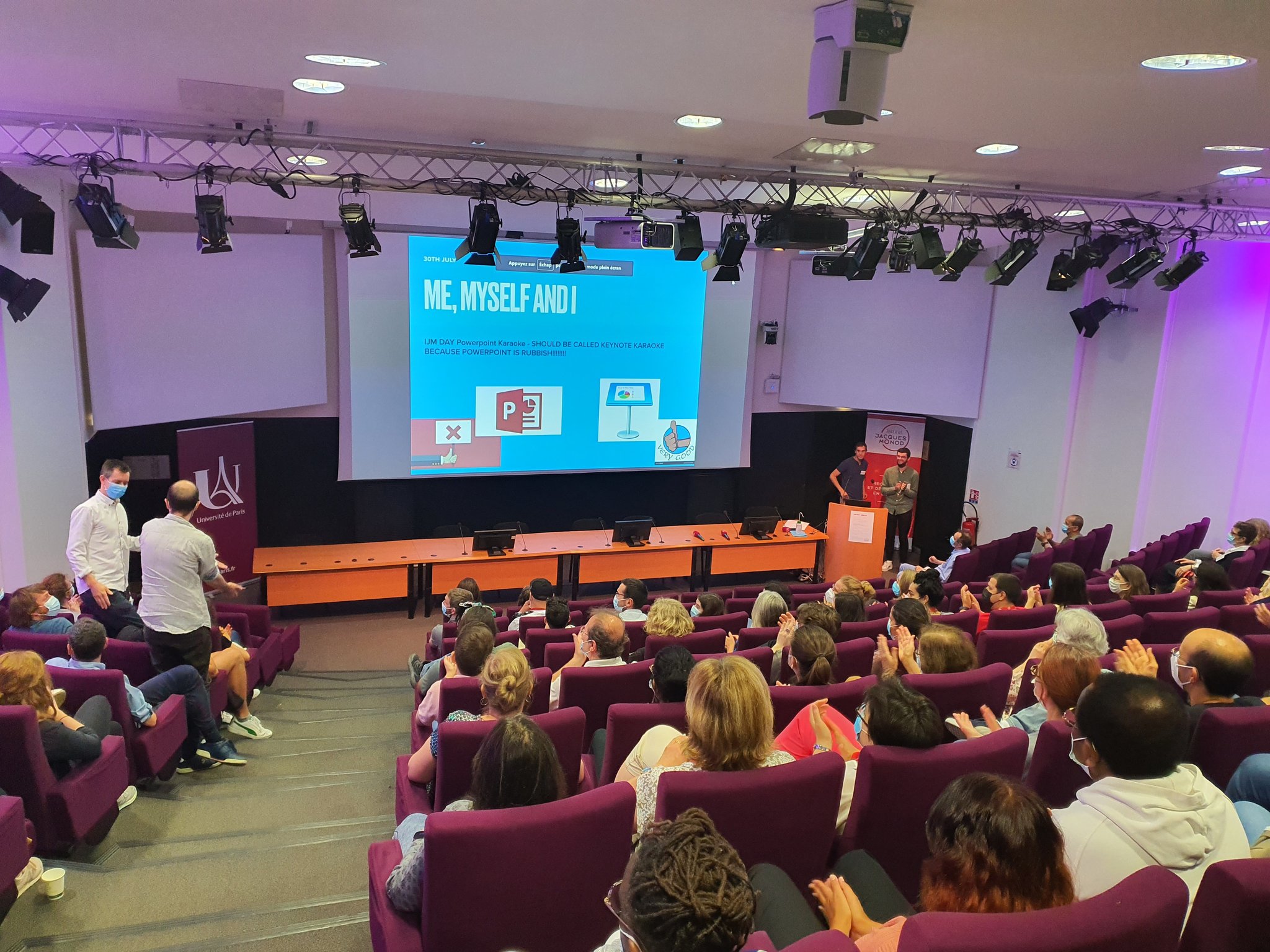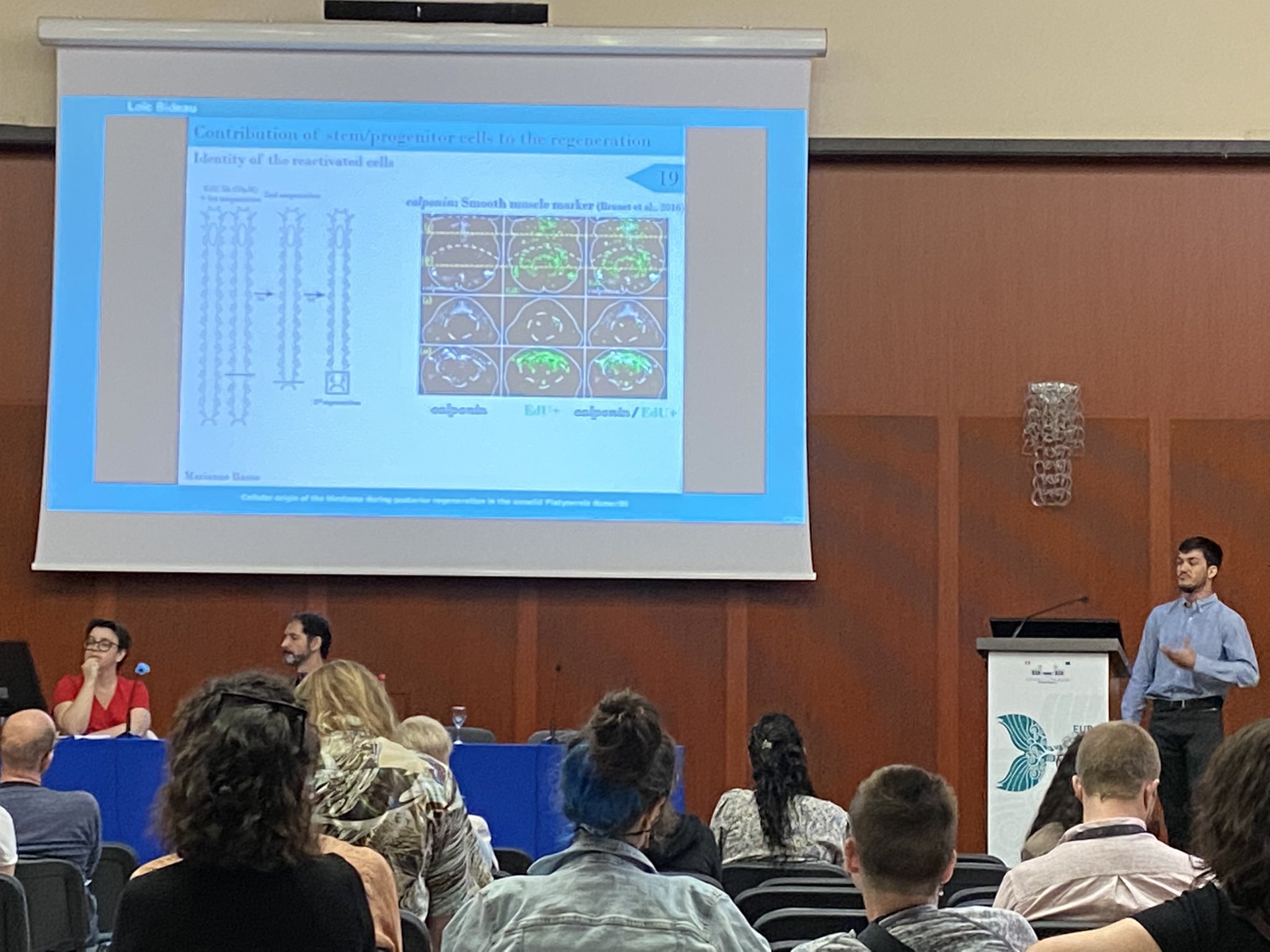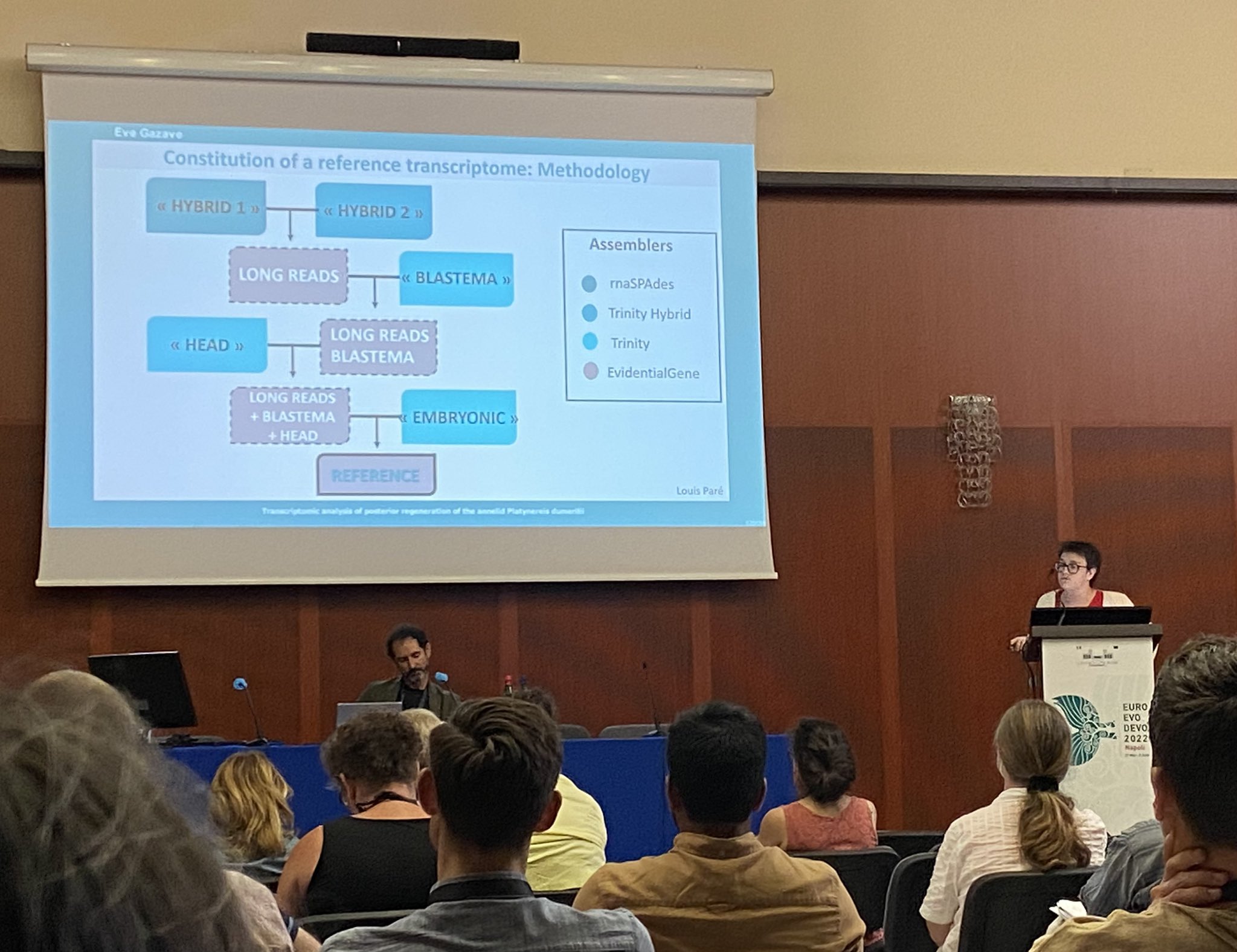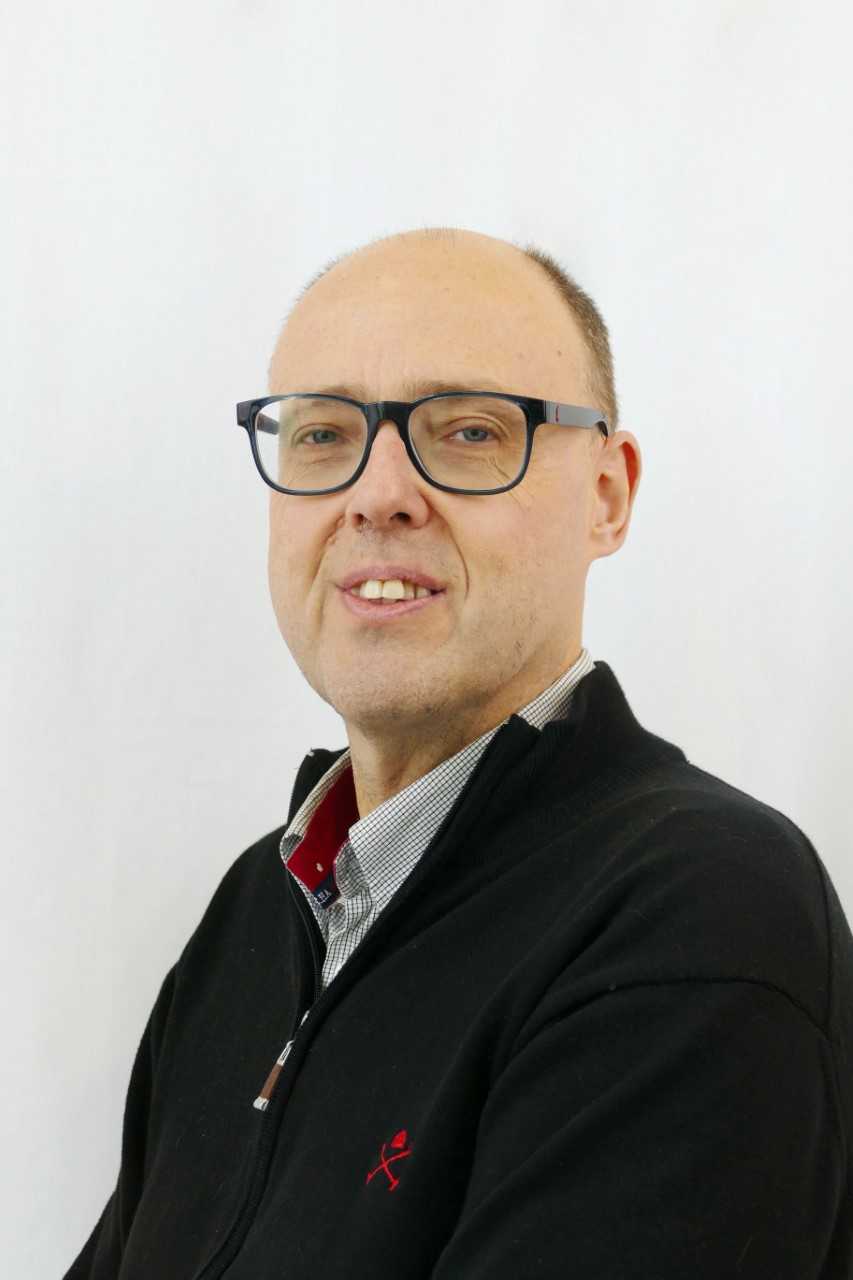
Our colleague, mentor and friend Michel Vervoort passed away on th 8th of December 2022 at the age of 52. His death leaves a huge void among all his colleagues and friends at the Institut Jacques Monod, but also within his scientific and teaching community.
Throughout his scientific life Michel was driven by a double interest: cellular identity, either during development or regeneration processes, and the evolution of living organisms.
Michel started his scientific career as a PhD student under the supervision of Dr. Christine Dambly-Chaudière at the Université Libre de Bruxelles, where he was interested in the genetic programs controlling neuronal determination in Drosophila. He obtained his PhD in 1996, at the age of 26.
Michel then did his post-doctoral work in the team of Dr. Alain Vincent at the Centre de Biologie du Développement in Toulouse (1997-1998). There he made the major discovery that the dose-dependent activation of a transcription factor in response to Hedgehog signaling determined the shape of the Drosophila wing. He then formalized his vision of the morphogenic action of Hedgehog, conceptualizing a biological question at the cutting edge of its current state of the art.
Michel was then appointed as a lecturer at the University of Paris 11 in Orsay and joined the team of Professor André Adoutte at the Centre de Génétique Moléculaire in Gif-sur-Yvette. Michel then became interested in the evolution of gene families involved in the development of metazoans, thus revealing the antiquity of the « transcriptional logics » that regulate the early development of multicellular organisms. He thus took advantage of data from genome sequencing to develop phylogenomic approaches that he would pursue throughout his career. This work contributed to a better understanding of the evolution of these genes and the developmental processes they control, particularly during neurogenesis. During this period, he also initiated studies in Evolutionary Developmental Genetics (Evo-Devo), focusing on emerging model organisms (such as the gastropod Patella vulgata and the annelid Platynereis dumerilii). The phylogenetic position of these organisms has allowed him to perform comparative studies at the scale of bilaterian organisms, and thus contribute to the reconstruction of the « sketch » of their last common ancestor. His interest in emerging model organisms in order to ask new questions of developmental biology in the context of evolution has never left him and he has participated in numerous studies, notably genomic, on other atypical species (Tribolium castaneum, Amphimedon queenslandica, Capsaspora owczarzaki, etc.).
In 2003, at only 33 years old, Michel was appointed Professor at the University Paris VII – Denis Diderot (now University Paris Cité). In 2009, he joined the Institut Jacques Monod as head of a team co-directed with Guillaume Balavoine. In 2010, he obtained a prestigious chair at the Institut Universitaire de France as a junior member. This was a starting point from which Michel will explore new avenues and new ways of looking at his discipline, with a focus on the evolution of mechanisms involved in developmental processes. He then became fascinated by the theme of stem cells and regeneration. With Eve Gazave, they built a new research axis that they will develop at the Institut Jacques Monod within the research team entitled « Stem Cells, Development and Evolution« . This work has led to a cellular and molecular characterization of the processes involved in regeneration and has brought to light unexpected evolutionary relationships between primordial germ cells and adult somatic cells. In the space of six years, this attractive team has successively integrated four post-docs, numerous Bachelor, BTS and Master students, and now welcomes four PhD students. All his former PhD students and post-docs agree to consider Michel as a true mentor who forged their conception of evolutionary sciences. This feeling is shared by many other young scientists who have asked him to join their thesis juries or committees. Michel and his team have also been involved in numerous collaborations, in France and abroad. Remarkably, and attesting to his great culture, Michel has also been interested in the philosophy of biology through collaborations, notably with Thomas Pradeu and Lucie Laplane.
In parallel, Michel has always been a very active Professor. He is a key member of the teaching teams of the Genetics Magistère and Animal Biology of the UFR Sciences du Vivant. He has also contributed to attract young physicists to biology in the Physics-Biology Interface Course. Many of his students have expressed their admiration for the clarity of his teaching and his unfailing availability. He also democratized his teaching through his contribution to a book on molecular evolution and to two university textbooks on embryology, all published by Dunod.
Finally, Michel has been strongly involved in the administrative aspects of research and teaching (scientific council of the European Society for Evolutionary Developmental Biology, CNRS National Committee, ITMO Cell Biology, Development, Evolution, labex « Who Am I? », scientific and administrative councils of the UFR Sciences du Vivant, AERES). He has participated in several recruitment committees for new professors and lecturers in various universities.
In 2011, Michel was diagnosed with lymphoma. His admirable courage and his human qualities allowed him, despite all the obstacles, to go through his multiple treatments with a communicative optimism and to always remain available to his colleagues in research and teaching.
All those who had the privilege of working with or meeting Michel praise his scientific culture, his open-mindedness and his moral and scientific standards, combined with his modesty, his extreme kindness and his benevolence. He leaves us a legacy of his passion and his transdisciplinary vision of biology and evolution that his colleagues will strive to reinforce and transmit.
Anne Plessis, Eve Gazave, Philippe Vernier, Pierre Kerner
